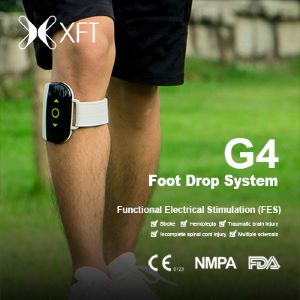Poster
Mild Traumatic Brain Injury Executive Function Rehabilitation Through Serious Gamification
Tuesday, October 31, 2023
3:55 PM - 4:01 PM
Location: Station 9
.jpg)
Akuadasuo Ezenyilimba, PhD (she/her/hers)
Postdoctoral Fellow in Artificial Intelligence in Society
Arizona State University | New York Academy of Sciences
Gilbert, Arizona, United States
Presenting Author(s)
Research Objectives: To implement an intervention to address the needs of mild traumatic brain injury (mTBI) individuals specifically.
Design: The study was a 2 x 2 (Group – between x Test – within) mixed experimental design, implemented over the span of six weeks.
Setting: The study was completed remotely.
Participants: 27 participants; n = 13 control group, and n = 14 experimental group.
Interventions: Initial and Final
Assessment: Two parts; clinical assessment (CNS Vital Signs) and experimental executive function assessment (Ụbụrụ).
Experimental group: three sessions/week; five games (three cognitive flexibility, one planning, and one organization) for four weeks.
Main Outcome Measures: Participant initial and final experimental executive function assessments scores; participants initial and final clinical assessment scores; and experimental groups weekly game scores.
Results: Hypothesis 1: Experimental group’s average score on the experimental executive function assessment was higher than the control group.
Hypothesis 2: This or That: Weeks 2–4 significance between participant score and game level. Train of Thoughts: Week one significance between participant score and game level. Keeping Track: Week two significance between participant’s level and recorded time; Week one significance between participant scores and recorded time. Rank Order: Week two significance between participant’s recorded time and level; Week one significance between participant score and game level. Beat the Value: Week three significance between participant score and game level.
Hypothesis 3: No observed statistical significance for participants primary, secondary, or tertiary focus scores
Hypothesis 4: Self-report survey; ‘it is difficult for me to plan out my day,’ highlighted a difference between groups in the final assessment self-report; observed difference in perception between groups
Conclusions: Though cognitive flexibility is a prominent area of executive function, mTBI individuals do not appear to struggle with tasks that require cognitive flexibility as much as they do tasks that are dependent on planning and organization. More research is needed for executive function training for planning and organization. It was also observed that mTBI individuals can benefit from executive function training, more than a year post-injury.
Author(s) Disclosures: No conflicts of interest.
Design: The study was a 2 x 2 (Group – between x Test – within) mixed experimental design, implemented over the span of six weeks.
Setting: The study was completed remotely.
Participants: 27 participants; n = 13 control group, and n = 14 experimental group.
Interventions: Initial and Final
Assessment: Two parts; clinical assessment (CNS Vital Signs) and experimental executive function assessment (Ụbụrụ).
Experimental group: three sessions/week; five games (three cognitive flexibility, one planning, and one organization) for four weeks.
Main Outcome Measures: Participant initial and final experimental executive function assessments scores; participants initial and final clinical assessment scores; and experimental groups weekly game scores.
Results: Hypothesis 1: Experimental group’s average score on the experimental executive function assessment was higher than the control group.
Hypothesis 2: This or That: Weeks 2–4 significance between participant score and game level. Train of Thoughts: Week one significance between participant score and game level. Keeping Track: Week two significance between participant’s level and recorded time; Week one significance between participant scores and recorded time. Rank Order: Week two significance between participant’s recorded time and level; Week one significance between participant score and game level. Beat the Value: Week three significance between participant score and game level.
Hypothesis 3: No observed statistical significance for participants primary, secondary, or tertiary focus scores
Hypothesis 4: Self-report survey; ‘it is difficult for me to plan out my day,’ highlighted a difference between groups in the final assessment self-report; observed difference in perception between groups
Conclusions: Though cognitive flexibility is a prominent area of executive function, mTBI individuals do not appear to struggle with tasks that require cognitive flexibility as much as they do tasks that are dependent on planning and organization. More research is needed for executive function training for planning and organization. It was also observed that mTBI individuals can benefit from executive function training, more than a year post-injury.
Author(s) Disclosures: No conflicts of interest.
Learning Objectives:
- Upon completion, participants will be able to learn more about their executive function abilities.
- Upon completion, participants will be able to identify potential decrements related to executive function.
- Upon completion, participants will be able to be more aware of their goals related to executive function rehabilitation.

.jpg)
